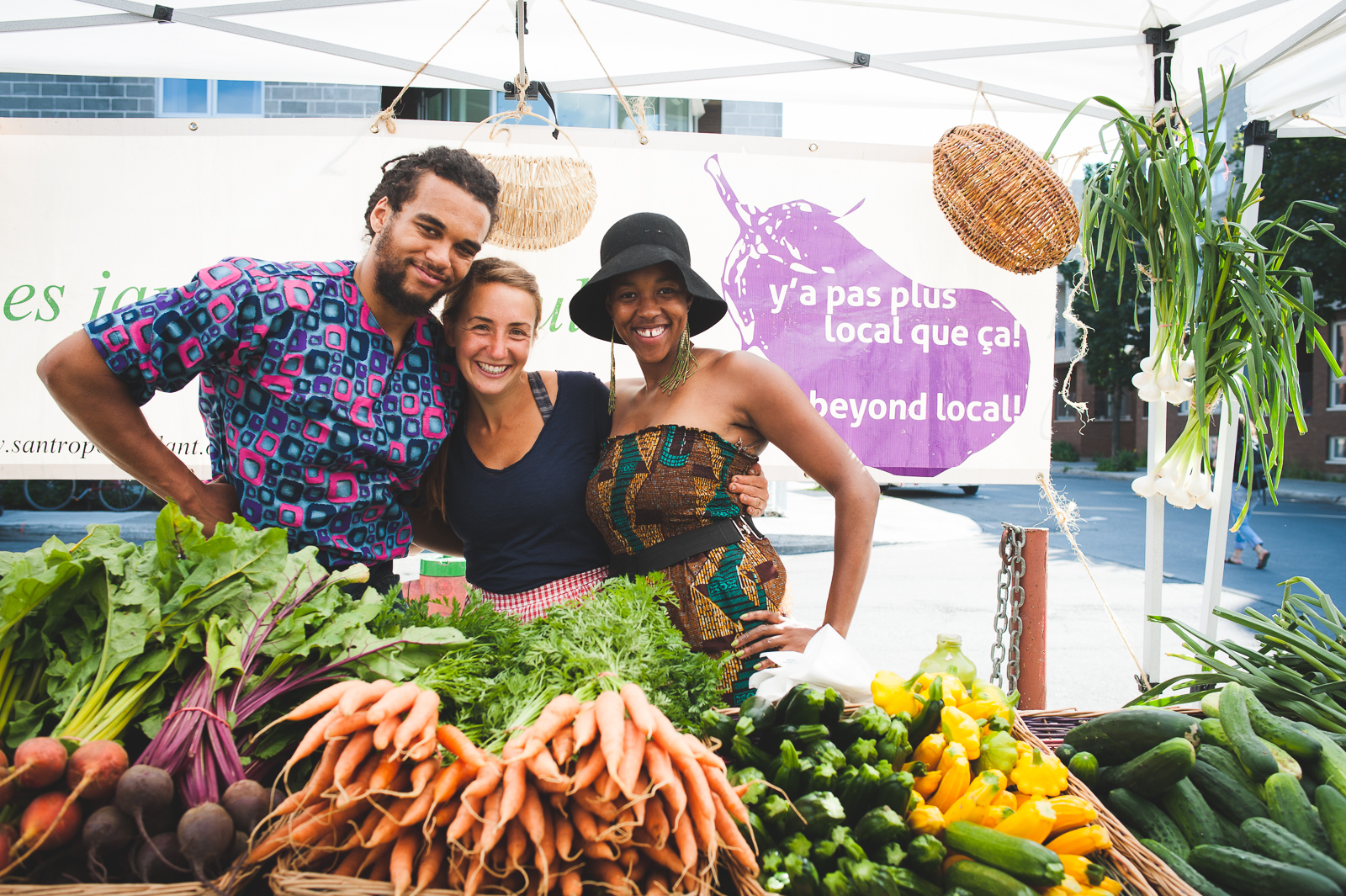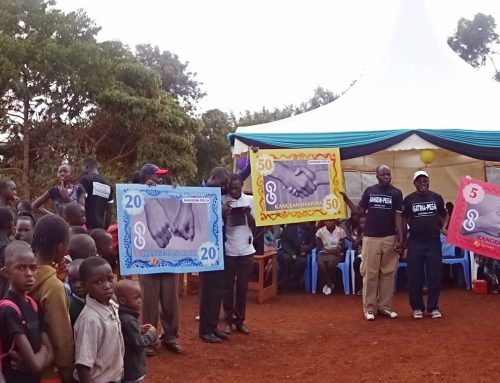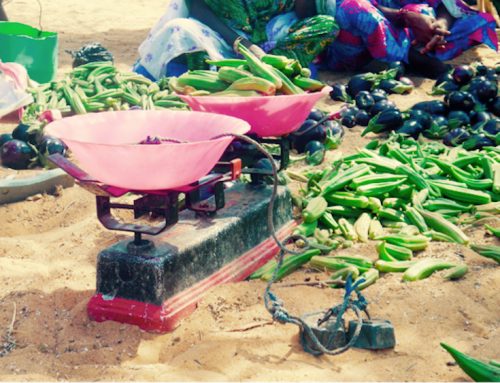How can an organization address urban food security and social inclusion while meeting the shifting needs and interests of a community?
The word “roulant” in French means “rolling” which conjures an image of some kind of cycle or circle –something that gives back. Cycles and interconnections are often hidden from urban life, despite their omnipresence. Sometimes organizations can bring these cycles to life and build new connections within urban spaces. Santropol Roulant, in downtown Montreal, Canada, is an organization that connects people. It connects people to roof-top gardens, urban pollinators, and steaming bins of compost – and of course, to each other.
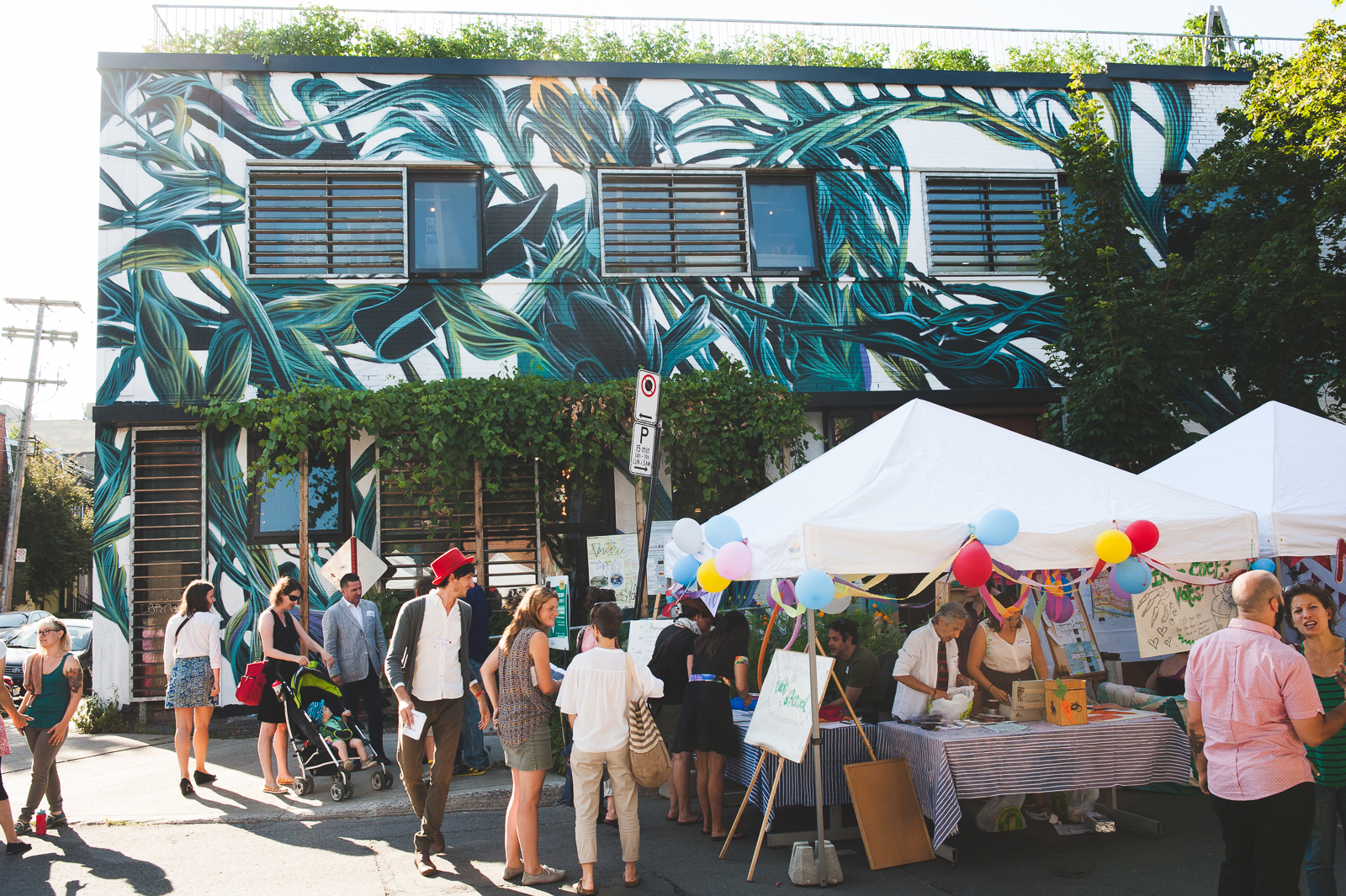 Bustling Santropol headquarters, photo by Alex Tran
Bustling Santropol headquarters, photo by Alex Tran
Santropol has three main branches of its organization: a meals-on-wheels program, working farms and gardens, and five volunteer-run collectives, addressing other sustainability interests in the community.
Meals-on-wheels: In this program, youth volunteers work to cook meals and then hand-deliver them to seniors in the surrounding community. The organization cooks 100 meals a day, 52 weeks a year and aims to serve potentially isolated members of the community.
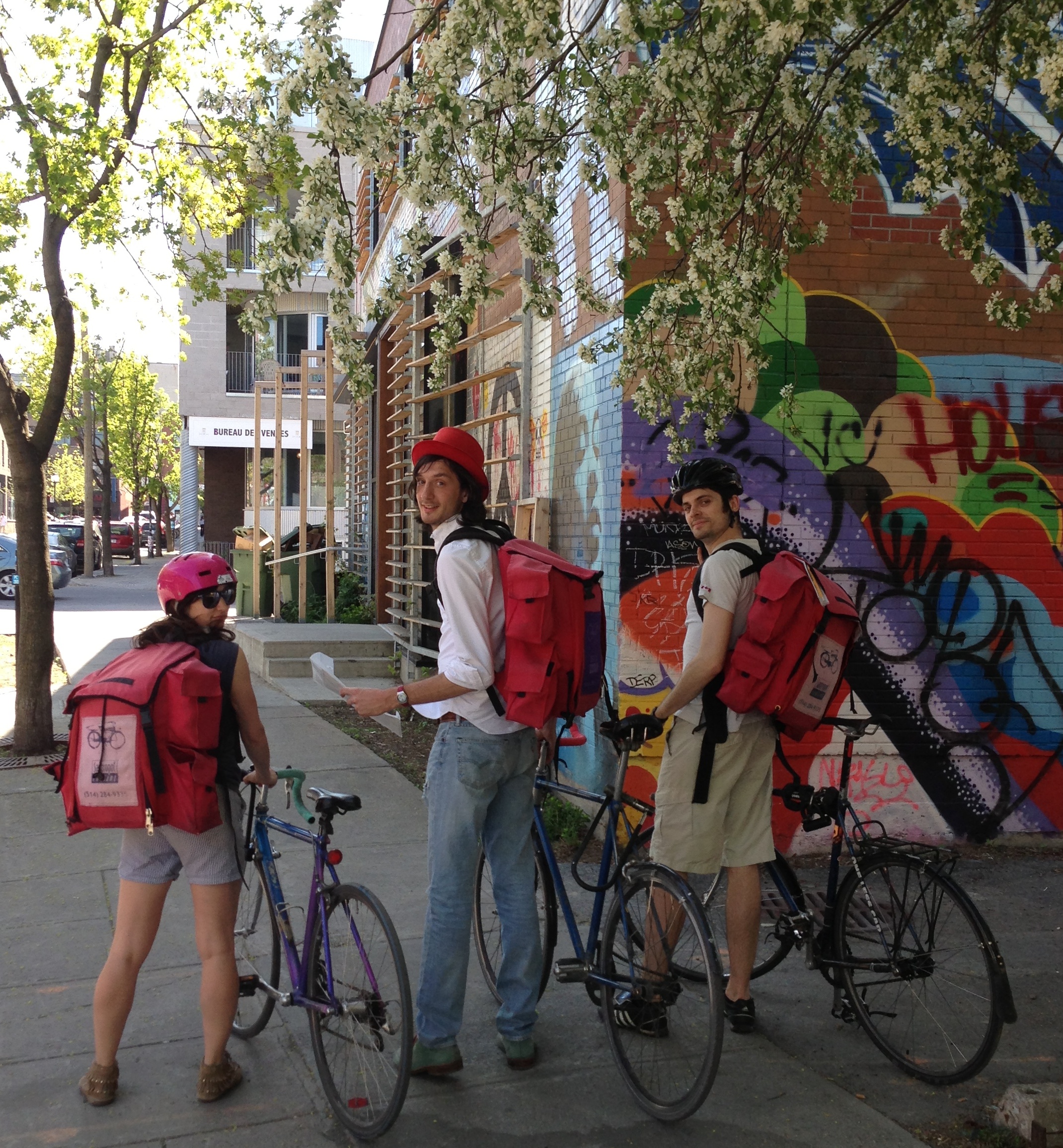
Meals-on-wheels bike messengers, photo provided by organization
Agriculture: Santropol operates both urban gardens and a peri-urban farm 40 km outside the city. These gardens are organically managed and are run by a small staff, interns, and many volunteers. Produce is sold on a sliding scale at weekly farmers markets in the city as well as via weekly CSA shares. Food produced at the farm also contributes to the meals-on-wheels program.

Farmer Sam shows visitors around the Santropol Farm, photo provided by organization
Collectives: A collective is a volunteer run operation that receives financial, physical, and institutional support from Santropol. These groups hold workshops, events, and add to the diversity of the organization. There are currently 5 collectives operating; they include: bike repair and maintenance, apiculture, edible fungi cultivation, urban fruit tree harvesting, as well as urban compost collection.
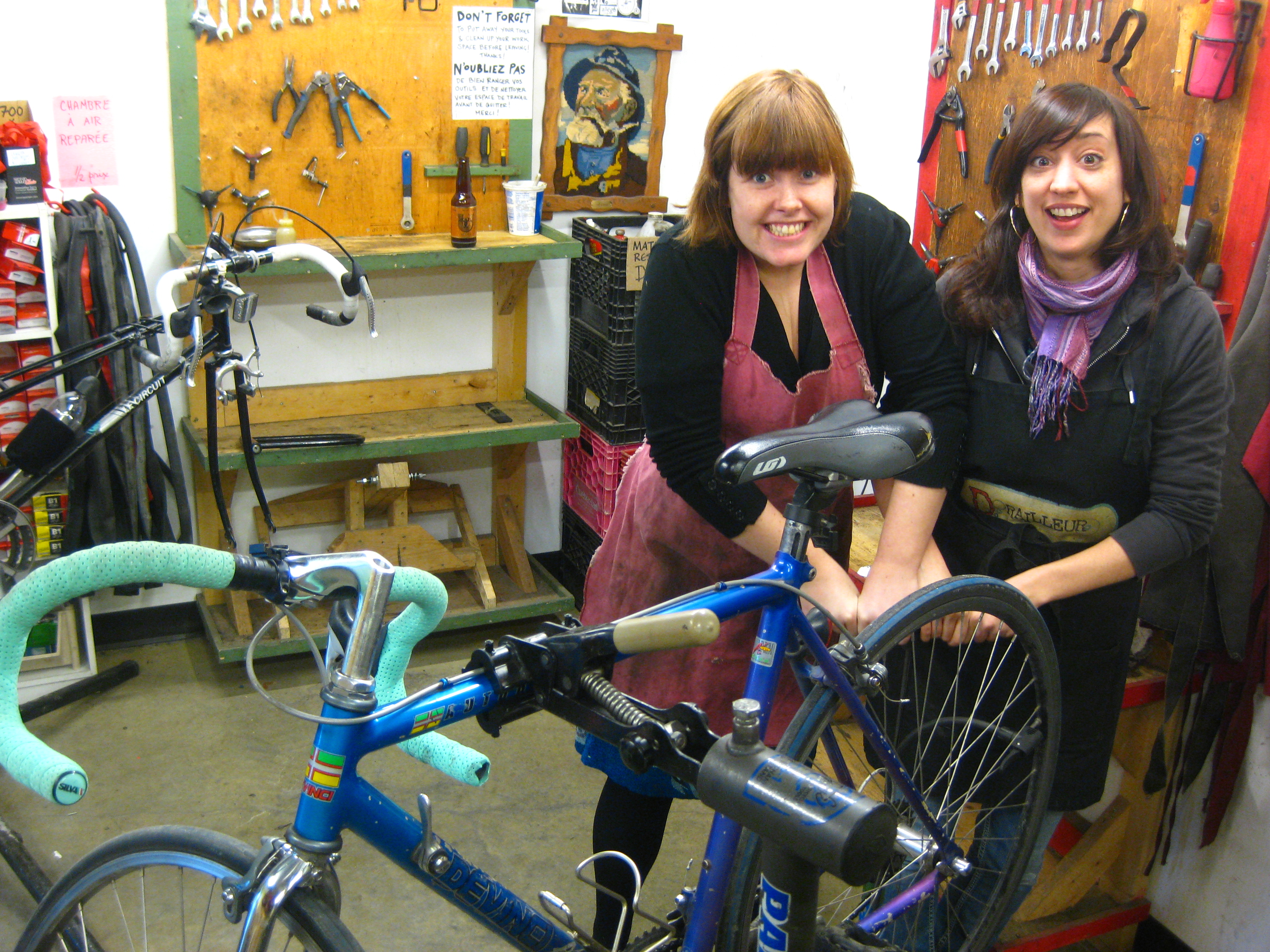
SANTROVELO: Santropol’s bike repair and maintenance collective, photo provided by organization.
Santropol addresses many challenges of urban life. At its most basic level, Santropol works to promote community building and food accessibility, but it goes deeper than that. According to Clémence Briand-Racine, farm manager, the peri-urban farm outside the city works to connect urban residents to rural food production. This farm pulls people out of the urban setting to experience a more traditional agricultural landscape. This aspect of the organization acts to educate people about some of the rewards and challenges of organic agriculture and rural life.
Santropol is currently in a phase of growth which poses challenges. The “collective” model and the diverse and complex nature of the organization makes the organization resilient and interesting but can divert energy from the main goals of the enterprise – agriculture and meals-on-wheels. As they have become bigger, they have outgrown some of their initial systems and infrastructure. They aim to expand in the coming years. One way they are considering expanding is by inspiring other organizations in the city to follow the Santropol model and serve other neighborhoods. Santropol’s collectives serve as potential ways to incubate new, bigger projects that may eventually gain autonomy.
The structure of Santropol allows people in the community to interact in a diversity of ways to meet a diversity of interests and goals. The organization seems to have something for everyone as exemplified by their buzzing headquarters: holding community kitchen events, movie screenings, farmers markets, and dance parties. Volunteering at Santropol feels like being part of something bigger than yourself; it is an example of a world where you can feed a part of yourself while also helping to feed others. There’s something about following crops from seed to harvest, turning compost into rich black soil, and the revolving door of bright-eyed volunteers that displays the good nature of the city and its people.

Santropol Urban Rooftop Gardens, photo provided by organization.
Cover photo by Alex Tran
